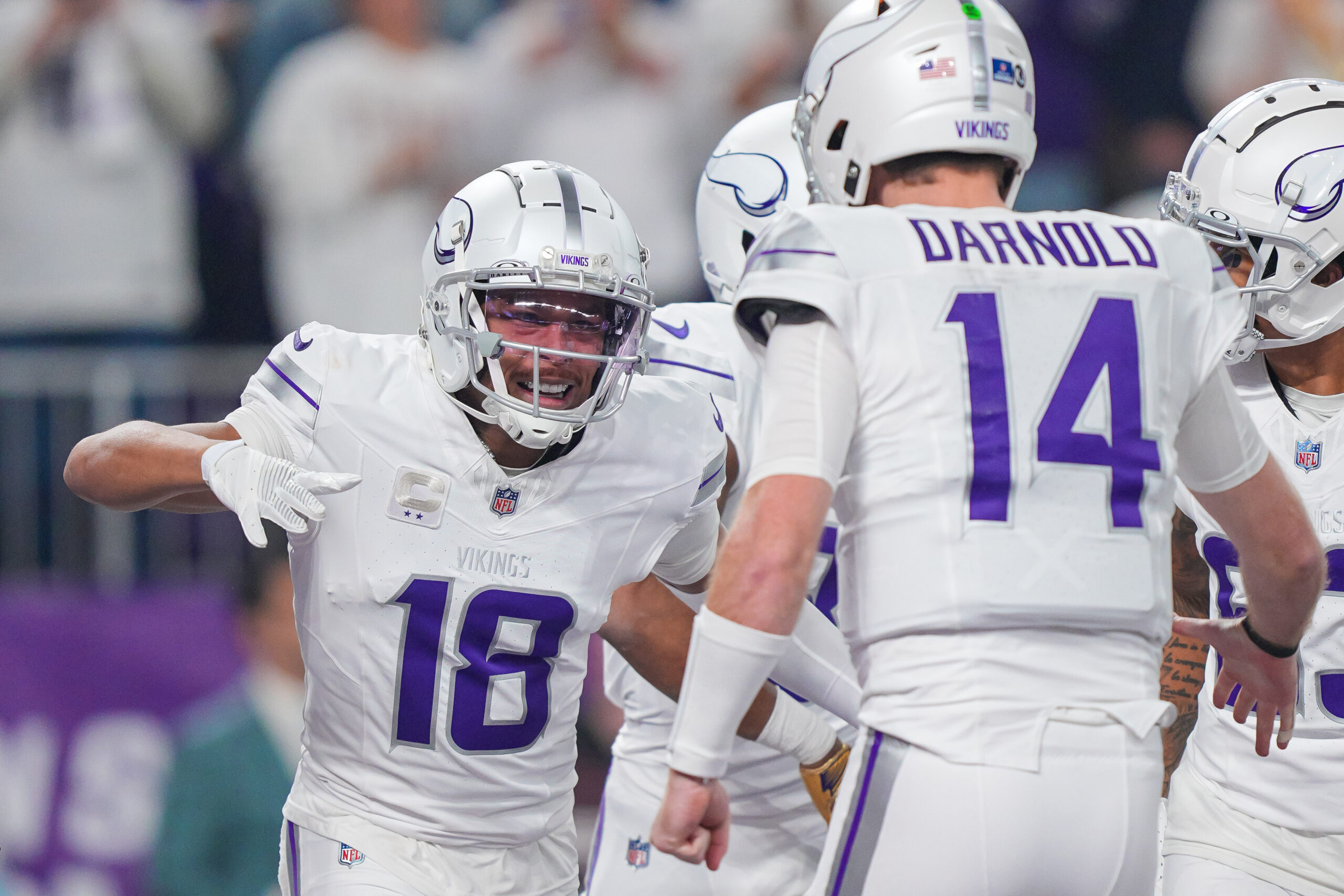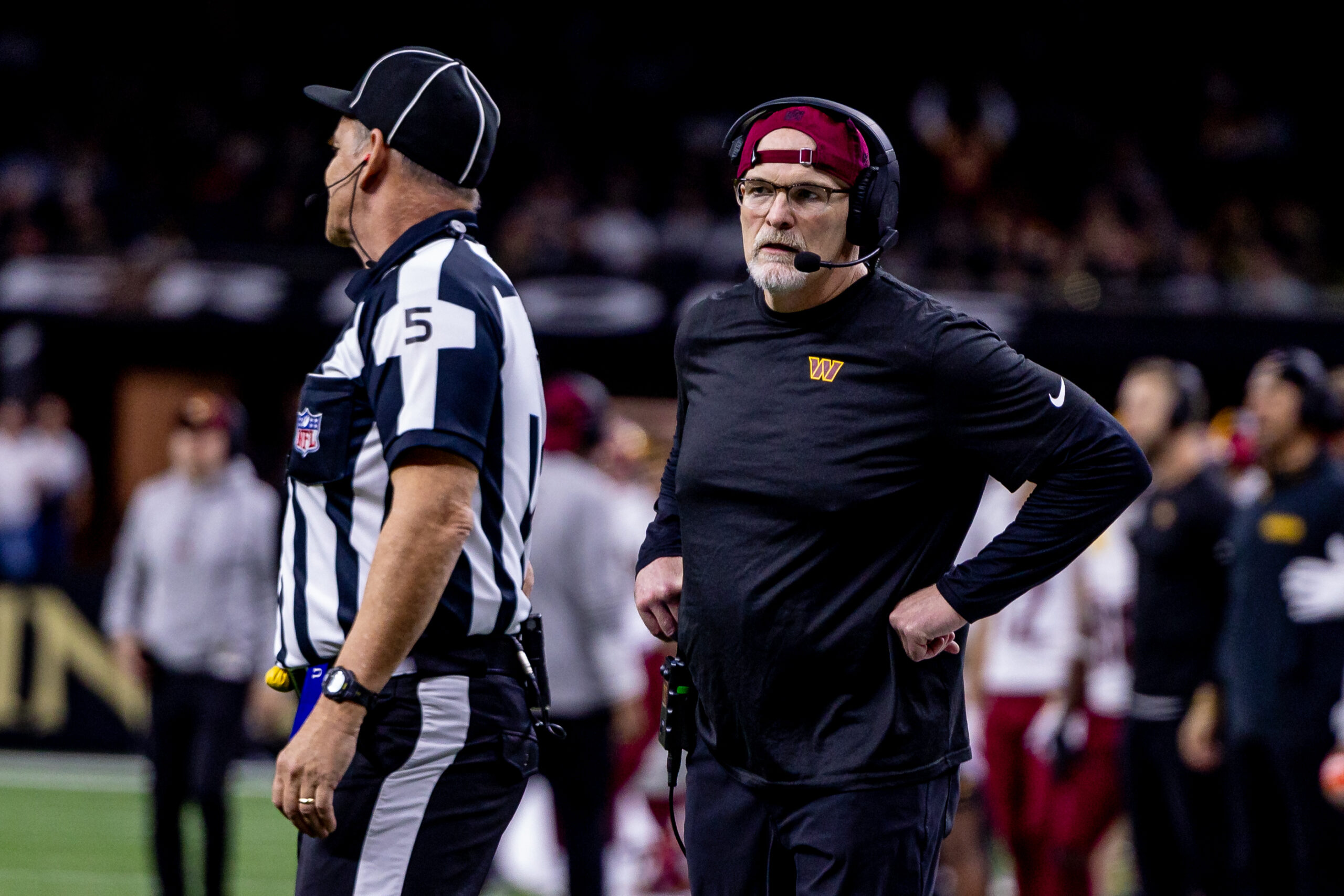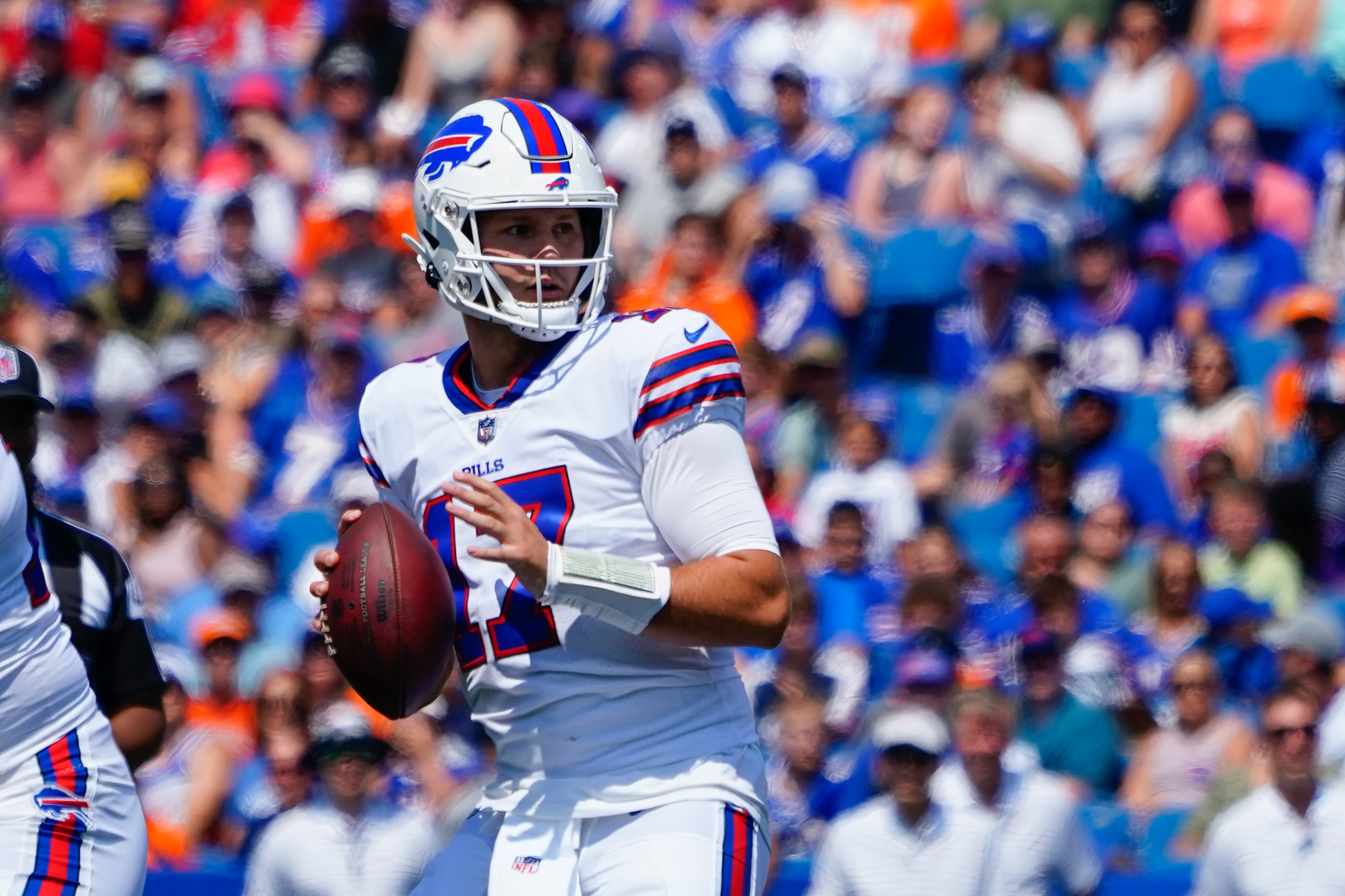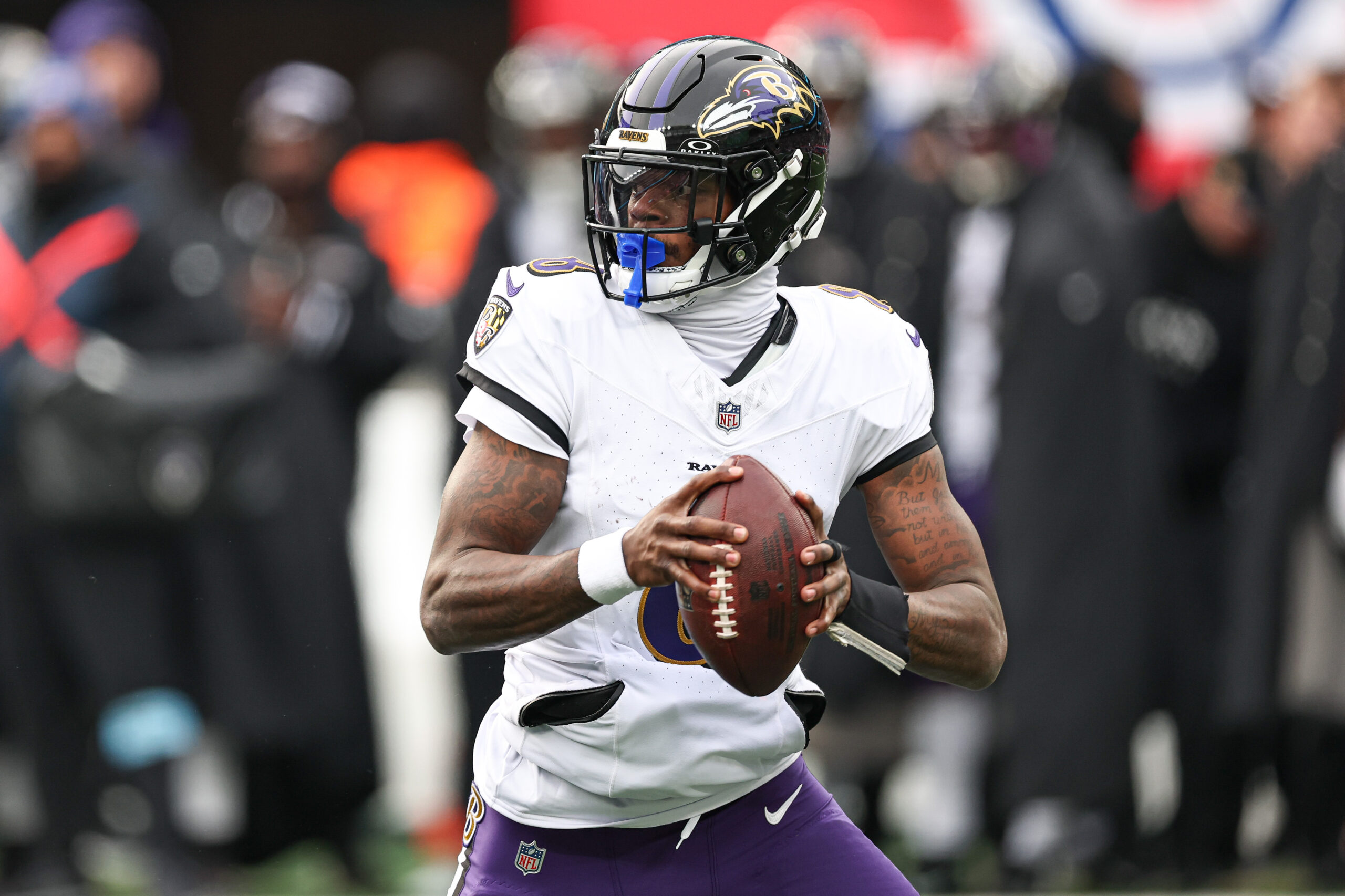NFL Analysis
4/26/24
7 min read
Atlanta Falcons’ Michael Penix, Kirk Cousins Gamble Carries Extreme Risk
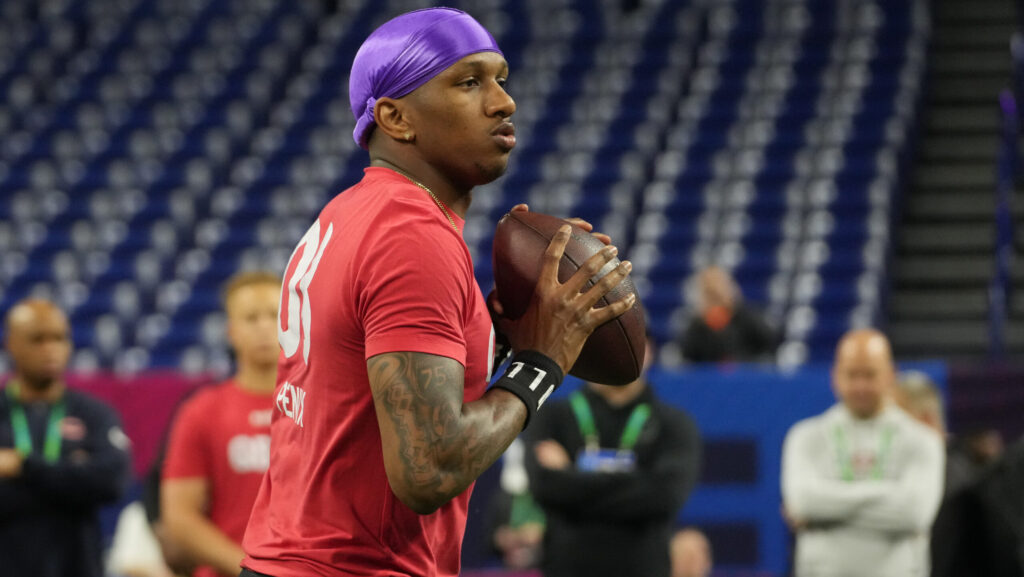
Michael Penix Jr. is a member of the Atlanta Falcons, which was the surprise of the 2024 NFL Draft's first night as the eighth overall pick. It came as a shock to most draft watchers — including current Falcons QB Kirk Cousins.
Cousins, who just signed a four-year contract with $90 million guaranteed in the first two seasons, was only told about Penix's selection while the Falcons were on the clock and preparing to call the Washington quarterback.
It’s a curious decision for a team that looked to jump into immediate contender status when it signed the 36-year-old Cousins.
What’s the plan here?
Cousins’s camp is frustrated the first-round pick was not used on a player who could help immediately.
Part of the rationale for the selection is that the Falcons feared they would not be bad enough to select a quarterback high in the draft during Cousins’s tenure. If that were to be the case, Penix would be sitting for years — an outcome Atlanta general manager Terry Fontenot not only seems to be OK with but would frame as a success.
There are significant differences between the situation with Penix and the last time we saw a draft-and-sit quarterback scenario like this: when the Green Bay Packers drafted Jordan Love in 2020. The Falcons actually even mentioned the past two quarterback transitions in Green Bay as a model.
But Penix will turn 24 in May, while Love, who just had his first full season as a starter in Year 4, will turn 26 in November. Penix could be 26 when he gets his first start if Atlanta moves on from Cousins after two years. However, Penix could be as old as 28 if Cousins plays out his deal. Penix would be a year younger if he is on the same timeline as Love, starting in Year 4.
The Packers used the 26th overall pick on Love (and the 24th pick on Aaron Rodgers to replace Brett Favre), which is less of an investment than the No. 8 pick the Falcons just used on Penix. Love signed a contract worth $12.3 million during the first four years. Per Over the Cap, the projected contract at the eighth pick comes with a $13 million signing bonus on a deal worth more than $22 million.
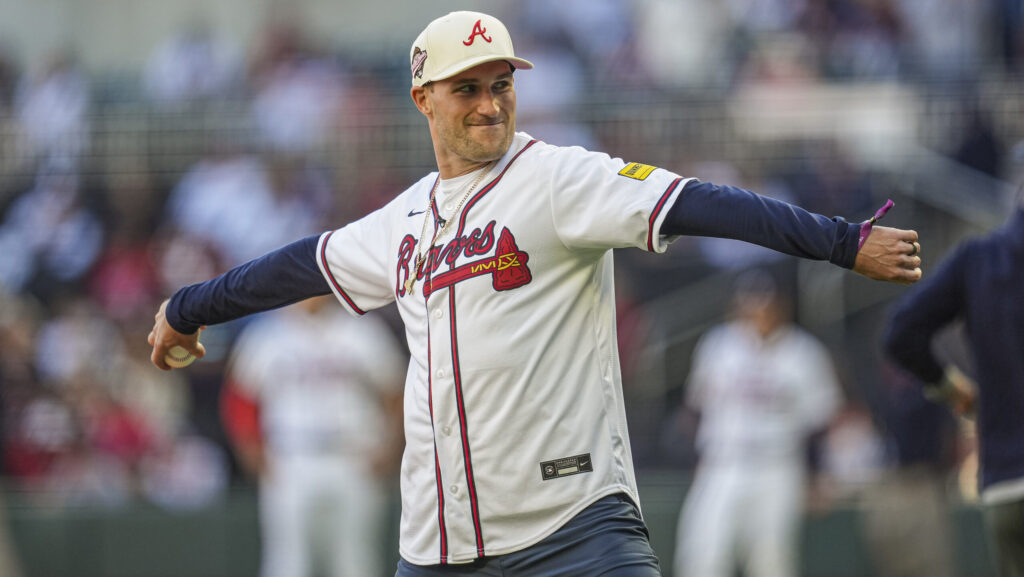
How committed are the Falcons to Kirk Cousins?
Atlanta signed Cousins to a four-year contract worth $180 million, but the guaranteed portion of the deal includes $90 million in the first two years. That’s the most realistic timeline for the first out in the deal.
By releasing Cousins after the 2025 season, Atlanta would create $32.5 million in cap space. He would have a $10 million roster bonus for 2026 guaranteed in 2025, but that would be the only guaranteed money remaining on the deal.
The Falcons could post–June 1 cut Cousins after the 2024 season, but the $40 million dead money hit for 2025 would be a wash with his scheduled cap hit. It would provide no cap relief, and another $25 million would hit the cap in 2026. But for that to happen, something would have to go catastrophically wrong with Cousins in 2024. In that scenario, the Falcons would probably have a record that places them near the top of the 2025 draft — a position to take a quarterback.
That would effectively cost the Falcons $90 million for one year of Cousins.
What were the alternatives?
There is an opportunity cost for the Falcons, who could have taken a defender or traded out and collected more picks to build around Cousins.
While outside draft analysts did not consider Penix a high first-round pick, several teams reportedly sought him out in the top 10. However, Fontenot said the team did not receive competitive offers for the eighth pick.
No defensive player was selected until No. 15, when the Indianapolis Colts picked UCLA edge rusher Laiatu Latu, starting a run of four defenders in the next five picks.
Atlanta has the 11th pick in the second round, 43rd overall, which could still be used on a defensive player. Cooper DeJean, Jer’Zhan Newton and Kool-Aid McKinstry were projected first-round picks who are still available in the second. Other available players include Ennis Rakestraw Jr., Kamari Lassiter and Kris Jenkins, who could all slide in as starters on the Falcons’ defense.
What are the Falcons getting in Penix?
Let’s get to the quarterback in question. Penix was a productive college quarterback but dealt with injuries throughout his career.
Last year, Penix threw for 4,903 yards with 36 touchdowns. He had more than 8.0 yards per attempt in both of his seasons at Washington. However, his first four collegiate seasons at Indiana were inconsistent, and he failed to play more than seven games in any of those years. Penix has a strong arm and scattered accuracy that was made better by the trio of receivers at Washington, which included ninth-overall pick Rome Odunze and two prospects who should come off the board on Friday.
Despite Penix's efficiency last season, his on-target rates to the short (1-10 air yards) and intermediate (11-19) levels of the field are in the sixth percentile of draft prospects since 2017. On deep throws, he had a 47th-percentile on-target rate. However, he was over the 60th percentile in completion rate to all three levels.
It’s possible his accuracy can be improved — Love is an example here — but Penix has already completed six years of college football. Banking on more improvement would be a big bet on offensive coordinator Zac Robinson, his scheme and the offensive skill positions made up of other top-10 picks.
What’s next?
The biggest question might be exactly when the Falcons believed Penix would be worthy of selecting with the eighth pick. Was it before Atlanta signed Cousins to a massive contract? Was it in the limited time between signing him and the draft? The combine, when the Falcons first met with Penix, was two weeks before Cousins was signed.
Exactly how much the Falcons fell in love with Penix — while Cousins was either in the immediate plans or already on the roster — could shape how quickly they want to get him involved.
If Cousins instantly bounces back from his Achilles injury and plays efficient football for the first two years, it would be difficult to move on from him just to get Penix on the field. But there will be an incentive to do so. Cousins might have to play better than he did during his final two seasons with Minnesota to hold off Penix for 2026.
For now, the Falcons have an expensive insurance policy ... behind an expensive veteran quarterback. In the best-case scenario, Atlanta won’t get its top-10 pick on the field for at least two seasons. There’s only a small window where the Falcons get a positive return on their big free agent acquisition and their top draft pick.
That’s a tough place to be.
Atlanta is betting big on the best-case scenarios for both players. This big swing could set the Falcons up for an extended period of plus quarterback play, but it could also force them into making suboptimal decisions to sort out their quarterback timeline.
It’s a big swing at the league’s most important position, and it’s the riskiest move this new regime could have made.

